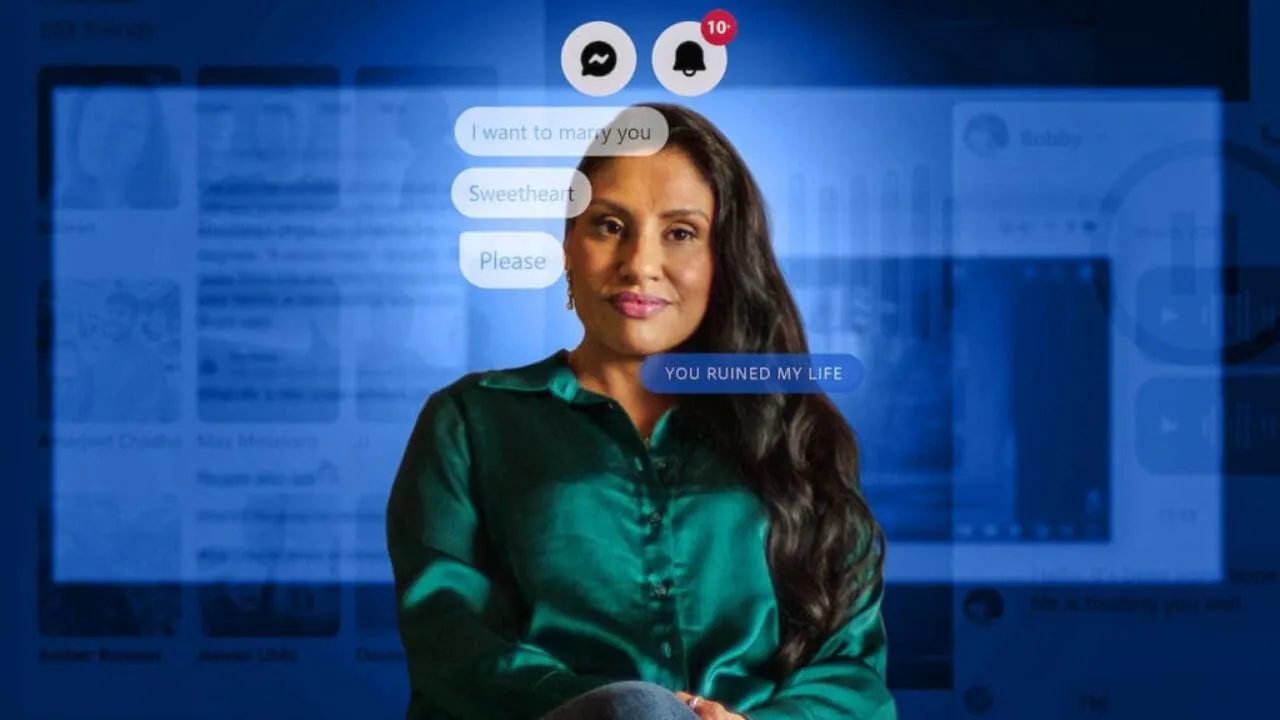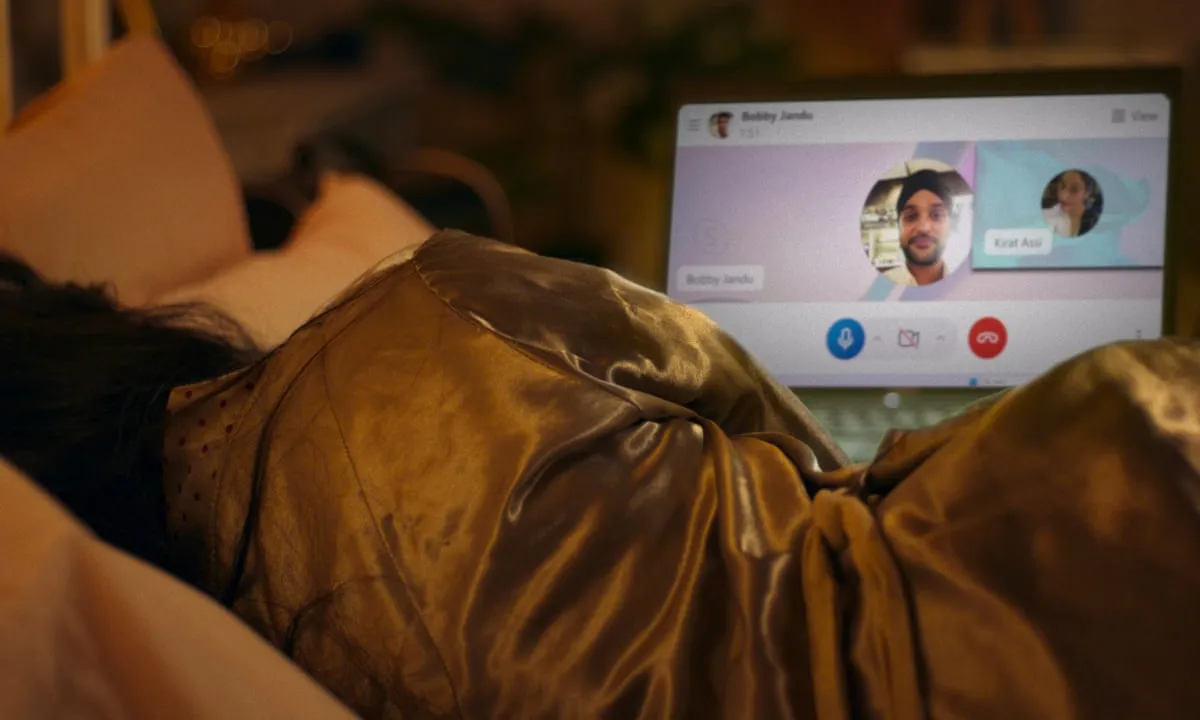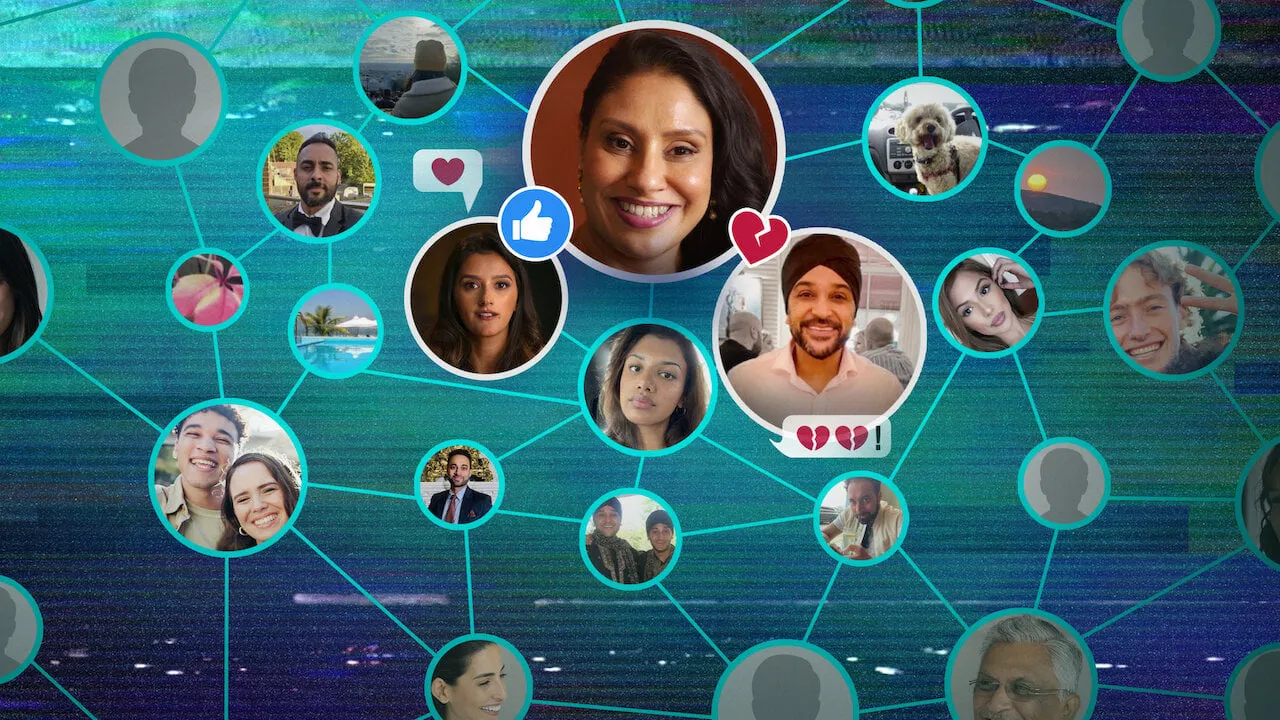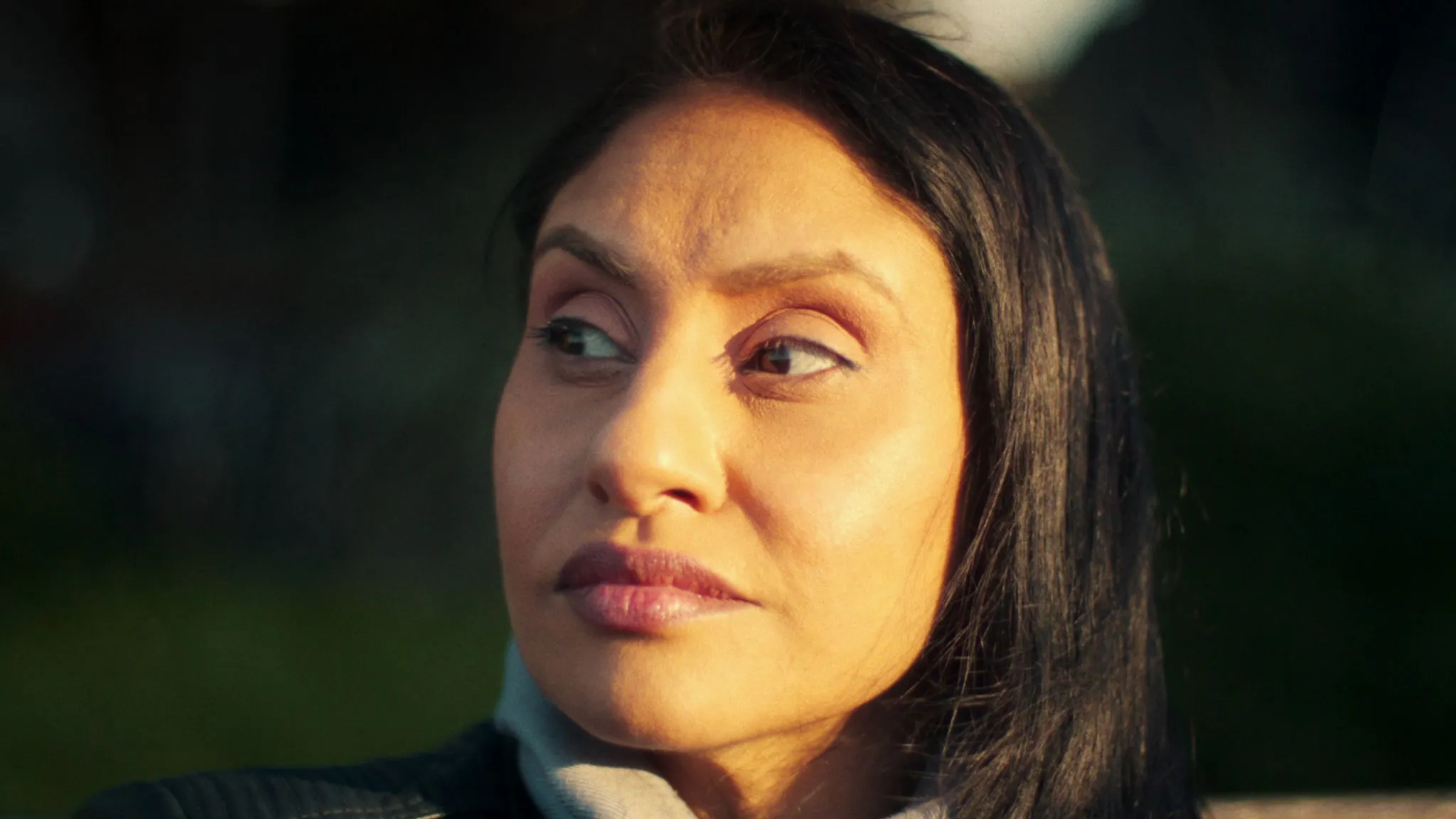In 2009, Bobby Jandu sent Kirat Assi a friend request on Facebook. Without realizing it, Kirat Assi began a ten-year journey of online deception. In Sweet Bobby: My Catfish Nightmare, she writes about being ensnared in a virtual relationship with a man who didn’t exist. This Netflix documentary, which is based on a podcast, presents her narrative in a chronological format, showing how she gradually fell into a relationship full of lies.
This documentary is important for more than just showing a personal tragedy; it’s about a bigger societal problem. Sweet Bobby emphasizes the flimsiness of trust in a digital age where connections frequently trump face-to-face action. Kirat’s story is a microcosm of how easily the alluring promise of connection can seduce a man.
This tale evokes past occurrences in which individuals were duped by charismatic leaders, such as cult leaders whose enticing appearances conceal evil intentions. In our quest for connection, we can become tragically naive, which we confront as Kirat navigates her relationship.
In the end, Sweet Bobby not only makes people more aware of how dangerous catfishing is but also shows how important it is to be careful in our online lives right now. The documentary compels us to quest for the truths behind the screens in a world where curated identities rule. What happens when the front breaks? The answer depresses us by reminding us of our shared humanity and the fine line between desire and deception.
The Tangled Web: Relationship Dynamics in Sweet Bobby
The development of Kirat Assi’s relationship with Bobby Jandu is a compelling case study of the complexities of online interactions. A classic tale of modern romance gone wrong, what starts out as a seemingly simple Facebook friend request turns into a complex emotional web. The excitement of digital connection makes their first chats lighthearted. You could call it an “electronic courtship.” The bond develops into a virtual romance as Kirat invests her heart, complete with whispered hopes of marriage and family.
Still, it’s interesting to think about how someone can become so deeply attached to a ghost. Humans’ need for connection often makes us blind to deeper truths, as Kirat’s journey shows. Over almost ten years, she works her way through a maze of lies and promises, and even though they seem far away, her emotional stake grows. It’s a testament to how seductive love can be, even through computers.
The narrative, however, gets darker as the relationship develops. Bobby’s lack of availability, his unbelievable tale of being in witness protection, and his numerous health problems that neatly prevent in-person meetings are all red flags. Each danger sign is like a whisper in the wind, and Kirat ignores them all because she wants a happy ending so badly (this may be what it means to say that “love is blind”).
Bobby uses tricks on people’s minds that would make any con artist happy. By manipulating Kirat’s fears and desires, he creates a sense of urgency and dependence. The emotional man manipulates her in both subtle and overt ways, creating a reality distortion field around her. It’s as if he’s playing a complicated game of chess in which Kirat is both the queen and the pawn, and he’s moved himself into a situation where questioning his motivations feels like a betrayal.
This shift brings up important questions about trust and vulnerability in the digital age. In our quest for connection, we might unwittingly entangle ourselves in dangerous narratives, as Kirat’s experience is a cautionary tale. The emotional toll of such manipulation is horrifying, evoking historical situations in which charismatic figures have ensnared individuals and ultimately lost their sense of self in the process.
Cultural Context: The Weight of Expectations
The cultural background, especially the stresses women in the Indian community face, is very important to Kirat Assi’s experience in Sweet Bobby: My Catfish Nightmare. The age-old institution of marriage dominates Kirat’s narrative, acting as a source of hope and pain.
It’s not just a personal goal to get married by a certain age; it’s also a cultural requirement that comes with a lot of family pressure. Kirat finds herself navigating a minefield of expectations, each step fraught with the possibility of failure, in a world where a woman’s worth is often determined by her marital status.
Kirat’s problems show a bigger problem: the conflict between custom and individuality within people. As her 30s go by, she struggles with the conflict between wanting to respect her cultural heritage and being happy with herself. Whenever she ignores a red flag in her relationship with Bobby, it’s not just love clouding her judgment; the weight of social expectations is also on her. The fear of disappointing family members, a common theme in many cultures but may be especially strong in Indian communities, can lead individuals to put up with things that would normally make them uncomfortable.
Kirat’s cultural background also greatly affects how vulnerable she is. The closeness of her group fosters a sense of belonging, but the stakes of her decisions are also raised. Connections to family and friends are both a source of support and a double-edged sword because they are woven into the very structure of her social life. As she keeps putting money into her relationship with Bobby, whose made-up life cleverly plays on her desire for connection and acceptance, this dynamic becomes more and more apparent.
You can’t say enough about how important community ties are to maintaining an online relationship. Mutual acquaintances aid in Kirat’s initial connection to Bobby, creating a false sense of security that increases her emotional investment. Bobby transforms into a symbol of societal goals and the pressures that come with them in this scene, where the film’s cultural symbolism shines.
Sweet Bobby challenges us to think about the enduring impact of cultural narratives on our daily lives in this digital age, where relationships can be as transient as a tweet. It’s a sobering warning that the quest for love can sometimes lead us down paths of deception while we’re wrapped in the comforting but suffocating embrace of cultural expectation.
Narrative Style: Telling a Tale of Deception
Sweet Bobby: My Catfish Nightmare has a unique narrative style that combines first-person narration with a patchwork of digital media, creating an interesting and scary story. Think of Kirat Assi as our modern-day Scheherazade, spinning a captivating and cautionary tale as she leads us through the perplexing world of online deception. Her voice is filled with a raw vulnerability that draws viewers into her world.
The documentary uses reenactments and digital evidence, such as screenshots of chats, social media profiles, and voice notes, to show how Kirat’s reality is different from the truth that lies beneath the surface. This layering of images enhances the narrative and also represents how broken-up online relationships can be. Each digital encounter is like a puzzle piece that shows a shocking picture of manipulation and betrayal.
The documentary initially has a quick pace but ultimately falls short in its execution. It rushes to the big reveal in 82 minutes, giving viewers a sense of shock rather than a slow buildup of events. This quick method skips over important details discussed in depth in the original podcast. The narrative feels a little unfinished because some important background information is missing, like more in-depth looks at Bobby’s psychological tricks.
The structure works well at keeping things suspenseful, but it trades depth for brevity, which may bother people who want a more in-depth look at the complicated dynamics at play. To keep things “snappy,” Sweet Bobby succeeds in captivating its audience while also posing questions about the stories that are left out.
Emotional Impact: The Weight of Deception
It’s hard to believe how much Kirat Assi’s catfishing experience hurt her emotionally in Sweet Bobby: My Catfish Nightmare. Anyone who has ever put their heart into a relationship, real or imagined, will be deeply moved by her transformation from hopeful romantic to a woman struggling with despair as the documentary progresses.
When Kirat first meets Bobby, she is very excited. Her connection with him fills a void and holds the promise of love and friendship. Her sense of hope turns into a deep sense of betrayal and loneliness as the layers of deception are peeled away.
The mental effects of this emotional roller coaster are shown in a very clear way. The weight of broken promises and the crushing realization that the man Kirat thought she loved was just a creation of someone else’s mind slowly wears away at her once-vibrant spirit. This fall into despair isn’t just a tragedy for one person; it’s also a commentary on how vulnerable digital relationships are. Kirat’s story raises unsettling questions about trust and the emotional risks we take in the name of love in a world where screens frequently obscure authenticity.
A testament to the documentary’s power is its capacity to elicit pity. People who watch aren’t just passive observers; they are pulled into Kirat’s emotional world and feel her pain as if it were their own. Putting Kirat’s pain next to the real Bobby, whose images were used in this complicated plan, adds another level of complexity. We are asked to feel sorry for Kirat’s pain and the person not meant to be hurt by this digital trick.
In Sweet Bobby, the way that vulnerability is shown is touching and real. We can all see our fears about intimacy in the digital age in Kirat’s willingness to talk about her pain. In our quest for connection, we may unintentionally expose ourselves to severe emotional harm, which forces viewers to confront the uncomfortable truth. The heart film reinforces the idea that behind every online persona is a human capable of love and destruction, making the stakes of connection all the more important.
Broader Implications: Navigating the Digital Minefield
When it comes to online relationships, Sweet Bobby: My Catfish Nightmare is a very important lesson about spotting red flags—those subtle signs that, if ignored, can lead to emotional disaster. In a time when digital deception is frighteningly common, Kirat’s experience emphasizes the need for increased awareness. It’s not just about keeping your mental health and sense of self safe; it’s also about avoiding heartbreak.
The documentary also raises important questions about the need to change the laws that cover catfishing and digital deception. The law often falls behind as society tries to figure out how to handle complicated online exchanges, leaving victims with no way to get help. This film may bring up the complexities of identity and authenticity in the digital world in conversation, which could serve as a catalyst for change.
Ultimately, the documentary is a cautionary tale encouraging viewers to engage in open conversations about online safety. It is a call to arms for a better-informed public that can better manage the murky waters of digital relationships with more skill and strength. The stakes are higher than ever in a world where finding love is just a click away.
Conclusion: The Echoes of Online Deception
In today’s digital world, Sweet Bobby: My Catfish Nightmare has a lot of meaning and shows how trust and deception work together in a complicated way. It affected Kirat’s personal story and society because it made people think deeply about how online interactions work.
The documentary powerfully reminds us of the human experiences that underpin these connections in an age where our identities are frequently curated and filtered. Personal tales like Kirat’s are important for understanding the complexities of love and intimacy, and they remind us all to be careful in the often dangerous waters of online intimacy.
The Review
Sweet Bobby: My Catfish Nightmare
Sweet Bobby: My Catfish Nightmare is an interesting look at how vulnerable online relationships can be. It does a great job of combining personal narrative with societal effects. In the digital age, Kirat Assi's story of hope and despair is both a cautionary tale and a moving look at trust. Even though the documentary's flow isn't always smooth, its emotional depth and cultural importance make it very powerful. This film is essential for anyone navigating the complexities of contemporary love because it entertains and teaches.
PROS
- Engaging personal narrative enhances emotional connection.
- Thought-provoking exploration of online relationships and deception.
- Strong visual storytelling through digital media and reenactments.
- Raises awareness about the psychological impact of catfishing.
CONS
- Pacing issues lead to a rushed conclusion.
- Omission of deeper psychological insights compared to the podcast.
- Some viewers may find the subject matter distressing.



















































